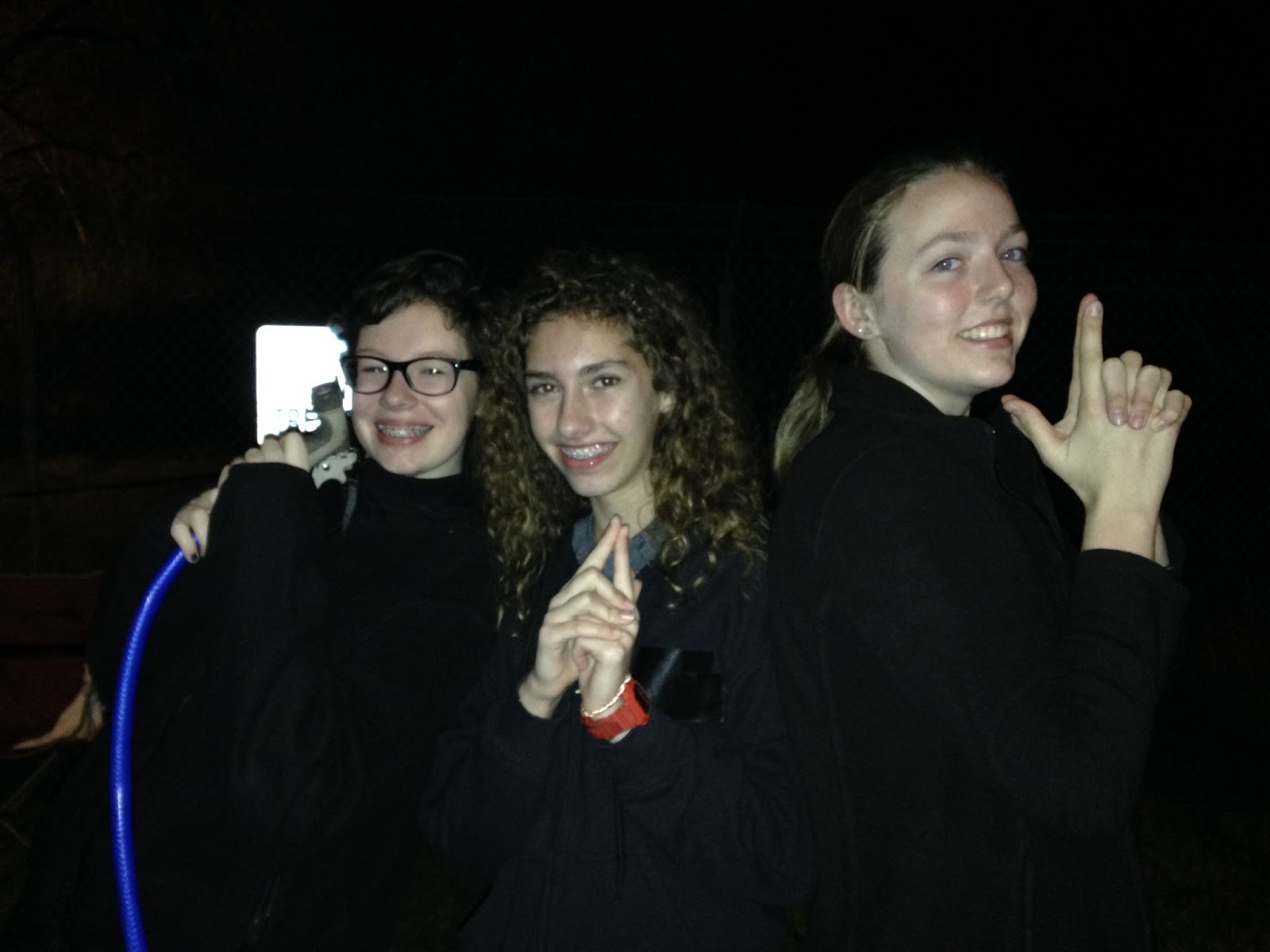This morning, Georgia had a brain MRI to get to the bottom of some troublesome headaches she's been having
(four in the last month). They seem to have somewhat of a pattern, which points to a "simple" answer like hormones or a blood sugar issue, so
we've been trying to fend them off with snacks after physical activity and
lots of fluids and rest. But they are pretty debilitating, and because of her history, and to rule out a possible relapse, her team wanted labs, the
MRI, and a full headache work-up. We're still waiting on the labs, but we got the scan results today, and the news is good - great, even! Her brain not only looks normal, it looks HEALTHY. There is no sign of relapse or of damage from the 25 rounds of chemo she had injected into her spinal fluid, so it was worth the tension of the last two weeks and the very loud and uncomfortable 30 minutes in the tube to get such beautiful pictures!
We'll follow up at the survivorship clinic
next week (with a possible guest appearance by Dr. Neff!), and at the end of March, she'll have her endocrinology appointment, which is a great place to get some of this sorted out. But we won't get in to neurology to start the headache work-up until April, so we probably won't have a
definitive answer for a while. All this to say, though, we are thrilled with today's results.
In the not too distant past, children diagnosed with Acute Lymphoblastic Leukemia were treated until they reached remission, and a large majority relapsed within months, either in the bone marrow, the Central Nervous System, or both. Leukemia that reoccurred in the CNS was particularly dangerous and nearly impossible to treat, which is why the fairly recent inclusion of CNS prophylaxis (which Georgia received in those 25 spinal tap/intrathecal methotrexate injections) was a game-changer. That, coupled with the introduction of vincristine to standard treatment protocols, dramatically increased overall survival rates for ALL to upwards of 85% today.
So how did we get to those numbers and those successes? Science. Research. Clinical Trials. All of which require people dedicated to doing years of work and people willing to help fund that work. We wouldn't have these results, or any of the other good results Georgia's had all along, without the research that has improved ALL treatment protocols and saved the vast majority of children that would have otherwise been facing a death sentence. Funding research is imperative to finding cures and safer, less-toxic treatments for all childhood cancers, and in honor of Georgia's fight, victory, and future, we hope you'll consider supporting our mission to conquer this disease, once and for all. Our youngest and bravest Peachy Keen would especially appreciate your generous donation, and we thank you, again and forever, for keeping Georgia on your mind and in your heart.






























